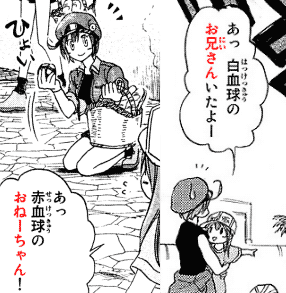In Japanese, ~chan ~ちゃん after someone's name is a cutesy honorific suffix generally used toward girls and children.
Usage
The chan suffix is a corruption of the neutral ~san ~さん suffix, which itself is a corruption of the respectful ~sama ~様 suffix.
Intimacy
The chan suffix is supposed to be a cutesy variant of san. It's casual, informal, and intimate.
When it's used, it normally implies two people are close to each other. They're very good friends, very intimate friends.
When that's not the case, using chan can come across as being too friendly. As trying to be more intimate than you actually are. In other words: using chan can be inappropriate in many situations.
Age
The chan is normally used toward little girls, children. It's used in this case just like the word "cutie" or something similar. If you think calling someone's child a "cutie" feels weird, you probably shouldn't use chan toward them, either.
Among children, it's normal for boys to call girls with chan ちゃん, and for girls to call boys with kun くん. However, as people grow up, the norm is to use san さん, regardless of gender, to keep some respectful distance between each other.
Flirting
In some cases, guys calling girls with chan ちゃん, rather than with san さん, can imply they're trying to flirt with them.
In real life, coworkers of a same company don't call each other with chan ちゃん. Depending on the situation, that might even be considered sexual harassment.
In anime, waitresses, dancers, idols, and so on, are often called with chan ちゃん. Sometimes because their line of work is about appearing cute and casual, close to the fans. Sometimes because the customers are creepy old men.
Girls calling girls chan ちゃん is more common than guys doing it, mostly because it doesn't have he same flirting connotation.
Given this and the age notion mentioned previously, in anime and manga, when a character in high-school calls a girl with chan ちゃん, it's because of either of the following reasons:
- The guy is pure.
They're childhood friends.
In his mind, their relationship is exactly the same as it were when they were children. - The guy is a jerk.
He's flirting with someone's girl.
Someone will beat him up soon.
Gender
Although chan ちゃん is normally associated with girls, it can be used toward guys, too, regardless of age. It just normally doesn't happen because guys calling guys a "cutie" is gay, as far as society is concerned.
However, although chan ちゃん is like the word "cutie" in English, it certainly doesn't mean "cutie." It's just a cutesy way of saying. It would be a weird choice of suffix toward a male person, but it can totally happen.
Two common cases would be toward children, again. You know how aunties call their nephews a "cutie" and start pinching their cheeks and stuff? I guess that works as an example.
Another common case are officer workers, often drunken, start calling everything by chan ちゃん.
Family
The terms for family members in Japanese can have the chan ちゃん suffix.
- otouchan
お父ちゃん
Dad. Father. - okaachan
お母ちゃん
Mom. Mother. - oneechan
お姉ちゃん
Older sister. - oniichan
お兄ちゃん
Older brother. - ojiichan
お祖父ちゃん
Grandpa. Grandfather. - obaachan
お祖母ちゃん
Grandma. Grandmother.
Naturally, if these are used they'd imply a higher level of intimacy in that family relationship than their san or sama counterparts.
Some of these words have other usages that are worth nothing.
In particular, oneechan and oniichan can be used toward young girls and guys whom you aren't related to. This can happen when a little child refers to an older teenager, for example.
- Context: a "platelet," kesshouban 血小板, drawn as a cute anime girl, referring to other cells.
- a', {hakkekkyuu no} oniisan ita yo!
あっ 白血球のお兄さんいたよ!
Ah, big brother {white blood cell} [is over there]!
- a', {sekkekkyuu no} oneechan!
あっ 赤血球のおねーちゃん!
Ah, big sis {red blood cell}!
Once again, the word oneechan can also be used by creepy old men to flirt with girls.
The words ojiichan and obaachan can be used toward elder men and women whom you aren't related to in similar fashion.
Sarcasm
The chan ちゃん suffix is sometimes used sarcastically to mock someone.
In anime, sometimes a character that enjoys making fun of another character calls them by chan ちゃん, implying they're cute and as such looking down at them.
Mascots
Female mascots generally have the chan ちゃん suffix attached to their names. By contrast, male mascots have ~kun ~くん attached to their names.

No comments: